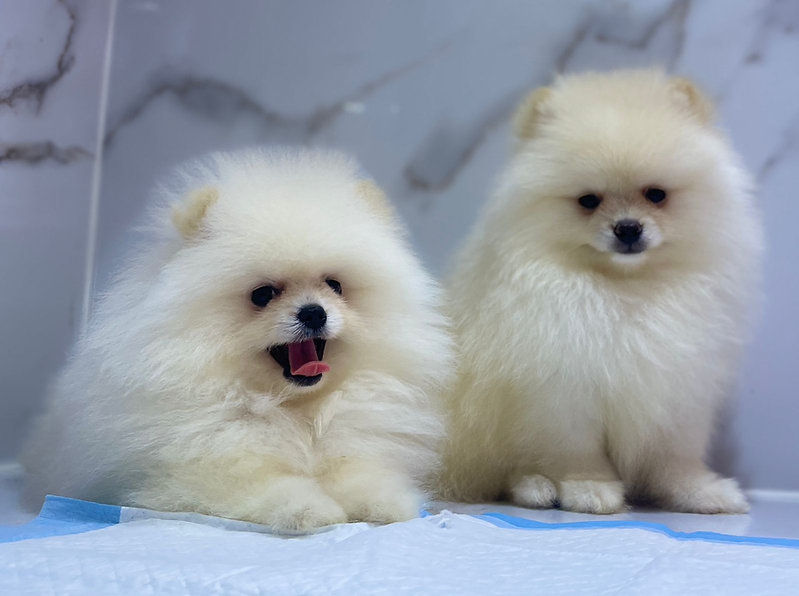The Unique Traits of a Doberman Pinscher Puppy
- Petholicks
- May 11, 2025
- 3 min read
Updated: Jun 14, 2025
Bringing a Doberman Pinscher puppy into your home can be one of the most rewarding experiences for any dog lover. These puppies are not only beautiful, but they are also incredibly intelligent and fiercely loyal. However, owning a Doberman Pinscher can present some unique challenges. This post will explore the outstanding traits that make Doberman Pinscher puppies special, along with essential tips for prospective owners.
Physical Characteristics

One of the first things that stand out about Doberman Pinscher puppies is their remarkable appearance. Born with a compact and muscular build, these puppies will eventually develop into the strong, agile dogs they are known to be. Their coats can be striking in colors such as black, rust, blue, or fawn, and they feature a short, smooth texture that is easy to maintain.
In their early development, Doberman puppies have large, floppy ears. Owners often face the choice of leaving them natural or cropping them. Each style has passionate supporters, and both look charming in their own way. These distinct ear styles, combined with their energetic demeanor, create a captivating presence that is hard to overlook.
Personality Traits
Doberman Pinschers are famous for their intelligence, and this trait is evident even in puppies. Research has shown that this breed ranks fifth in dog intelligence, meaning they are quick learners. With proper training, many owners report that their Doberman puppies can learn basic commands like "sit," "stay," and "down" in just a few days. Early socialization, with exposure to diverse environments and people, helps cultivate their friendly nature.
While they may appear aloof around strangers, Dobermans are loyal and protective of their families. This protective instinct makes them vigilant guardians. However, it also means that adopting a Doberman requires commitment to consistent training and socialization from an early age, helping ensure they develop into well-rounded adult dogs.
Exercise and Activity Needs

Doberman Pinscher puppies are brimming with energy and require significant exercise to thrive. The breed needs at least 1-2 hours of physical activity daily. This can include short walks, spirited play sessions in a secure backyard, or engaging activities like fetch or agility training.
Without sufficient exercise, these puppies may become restless and exhibit destructive behaviors. Establishing a daily routine that includes varied playtime and learning activities is crucial. This not only promotes physical health but also strengthens the bond between puppy and owner. A study found that dogs who get regular exercise have lower stress levels and display fewer behavioral issues.
Grooming Requirements
Grooming a Doberman Pinscher puppy is relatively straightforward. Their short coats shed minimally, making maintenance easier compared to long-haired breeds. A simple weekly brushing can manage loose fur and keep the coat shiny. Bathing should be done as needed—typically every few months, unless they get particularly dirty.
Regular vet check-ups are also essential to monitor for potential skin issues or allergies. This proactive approach ensures the puppy remains healthy and comfortable.
Health Considerations
Like all breeds, Doberman Pinschers may face specific health concerns. Common issues include hip dysplasia, heart conditions such as dilated cardiomyopathy, and von Willebrand’s disease, a bleeding disorder. It's vital for potential owners to choose reputable breeders who conduct health screenings on their breeding dogs to minimize these risks.
Regular veterinary visits for vaccinations and check-ups can help catch any health issues early. Taking responsibility for your puppy's health means being aware of these potential challenges and making informed decisions to promote their well-being.
Training Tips
Training a Doberman Pinscher puppy can be a highly rewarding experience. Start with fundamental obedience commands such as "sit," "stay," and "come." Consistency and patience are essential. Positive reinforcement methods, like treats and praise, will motivate the puppy to learn.
Socialization is another critical component. Introduce your puppy to various people, pets, and environments. This exposure helps them grow into adaptable and confident adults. Puppy training classes or structured playgroups provide excellent settings for interaction, promoting well-adjusted behavior.
Family Dynamics
Doberman Pinschers excel in family settings due to their loyalty and trainability. They can be terrific companions for families with children. However, supervision during interactions is crucial to prevent any accidental roughness that could lead to mishaps.
Teaching children about how to approach and handle dogs is necessary. By understanding dog cues and respecting their space, kids can build a loving relationship with the puppy, fostering mutual respect and safety.
Final Thoughts
Owning a Doberman Pinscher puppy presents both rewards and challenges that require time, patience, and dedication. This breed’s intelligence, loyalty, and striking appearance can provide an enriching experience for those ready to invest in proper care and training.
If you're considering welcoming a Doberman Pinscher puppy into your home, it's important to understand their unique needs and characteristics. By offering a structured routine, extensive socialization, and stimulating activities, you can raise a well-rounded adult dog that embodies the best of this remarkable breed. Happy puppy parenting!





Comments